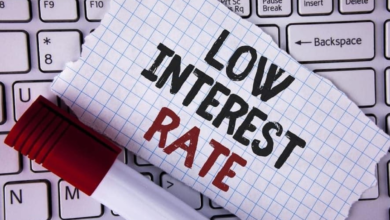Navigating Financial Emergencies: The Ultimate Guide to Emergency Loans for Bad Credit

Emergencies can strike unexpectedly, leaving us scrambling for solutions. When faced with a financial crisis and a poor credit score, finding a lifeline may seem daunting. However, there’s hope in the form of emergency loans tailored for those with bad credit. In this comprehensive guide, we’ll navigate through the intricacies of emergency loans for bad credit, exploring options, strategies, and crucial considerations to help you weather any financial storm.
Understanding Emergency Loans for Bad Credit
Navigating the landscape of emergency loans begins with understanding what they are and how they differ from traditional lending options. Emergency loans bad credit are designed to assist individuals facing financial crises, regardless of their credit history. Unlike conventional loans, which heavily rely on creditworthiness, these loans prioritise other factors such as income and employment stability. By accommodating borrowers with less-than-perfect credit scores, these loans offer a vital safety net during times of urgency.
Types of Emergency Loans for Bad Credit
Emergency loans for bad credit come in various forms, each with its terms, requirements, and benefits. Here are some standard options to consider:
Payday Loans: These short-term loans provide quick access to cash, typically due on your next payday. While convenient, they often come with high interest rates and fees, making them costly.
Instalment Loans: Unlike payday loans, instalment loans allow you to repay the borrowed amount over time in fixed instalments. While they may have lower interest rates than payday loans, they are still more expensive than traditional loans.
Secured Loans: For those willing to put up collateral, such as a vehicle or valuable asset, secured loans offer lower interest rates and higher borrowing limits. However, failing to repay could result in the loss of the collateral.
Credit Union Loans: Some credit unions offer small-dollar loans with more favourable terms than traditional payday lenders. These loans are often accompanied by financial counselling services to help borrowers improve their economic well-being.
Tips for Responsible Borrowing and Mitigating Risk
While emergency loans can provide immediate relief, it’s essential to approach borrowing responsibly to avoid exacerbating financial woes. Here are some tips to keep in mind:
Utilise Only the Necessary Resources: Assess your financial needs realistically and borrow only the amount required to cover emergencies. Avoid the temptation to borrow more than you can comfortably repay.
Compare Offers: Shop around and compare loan offers from multiple lenders to find the most favourable terms and rates. Pay attention to the APR (annual percentage rate) to understand the actual cost of borrowing.
Read the Fine Print: Thoroughly review the loan agreement, including terms, fees, and repayment schedule, before signing. Clarify any doubts or concerns with the lender to ensure complete understanding.
Create a Repayment Plan: Develop a realistic repayment plan for your budget and timeline. Establish automated payment systems to mitigate the risk of missed deadlines and associated late fees.
How to Qualify for Emergency Loans with Bad Credit
While emergency loans bad credit are more accessible than conventional loans, qualifying still requires meeting specific criteria. Here’s what lenders typically consider:
Income Stability: Demonstrating a steady source of income reassures lenders of your ability to repay the loan. Provide proof of employment, pay stubs, or bank statements to support your application.
Debt-to-Income Ratio: Lenders assess your debt-to-income ratio to gauge your ability to manage additional debt responsibly. Aim to keep this ratio below 40% to improve your chances of approval.
Collateral: Secured loans may require collateral to mitigate the lender’s risk. Ensure you have valuable assets to pledge, such as a vehicle or savings account.
Credit History: While bad credit won’t necessarily disqualify you, lenders may still review your credit history to assess risk. Be prepared to explain any past financial challenges and highlight recent improvements.
Alternative Options to Emergency Loans
While emergency loans can be a lifeline in times of crisis, exploring alternative options is crucial to ensure you’re making the most informed decision for your financial situation. Here are some alternatives to consider:
Emergency Savings Fund: Building an emergency savings fund provides a cushion to rely on when unexpected expenses arise. Aim to set aside at least three to six months’ living expenses in a separate savings account to cover emergencies without borrowing.
Negotiating with Creditors: If you’re facing temporary financial hardship, consider contacting your creditors to negotiate more favourable terms. Some creditors may offer temporary payment extensions, reduced interest rates, or revised repayment plans to help you through tough times.
Borrowing from Friends or Family: While asking for financial assistance from loved ones can be uncomfortable, borrowing from friends or family members could be a viable option without the added costs and risks associated with traditional loans. Ensure the establishment of unambiguous repayment conditions and sustain transparent communication channels to uphold professional relationships.
Government Assistance Programs: Depending on your circumstances, you may be eligible for government assistance programs designed to provide financial support during emergencies. Explore options such as unemployment benefits, housing assistance, food assistance, and low-income energy assistance programs to alleviate financial strain.
Side Hustles or Gig Work: Supplementing your income through side hustles or gig work can provide an additional source of income to help cover expenses and build financial resilience. Explore freelance work, ridesharing, pet sitting, or online tutoring opportunities to earn extra cash during your free time.
Conclusion
In times of financial distress, emergency loans for bad credit can serve as a vital lifeline, providing much-needed relief when traditional avenues are inaccessible. By understanding the types of loans available, qualifying criteria, and strategies for responsible borrowing, you can navigate through emergencies with greater confidence and resilience. Remember, while emergency loans offer immediate assistance, they should be cautiously approached and used judiciously to avoid falling into a cycle of debt. With careful planning and informed decision-making, you can weather any financial storm and emerge stronger on the other side.



